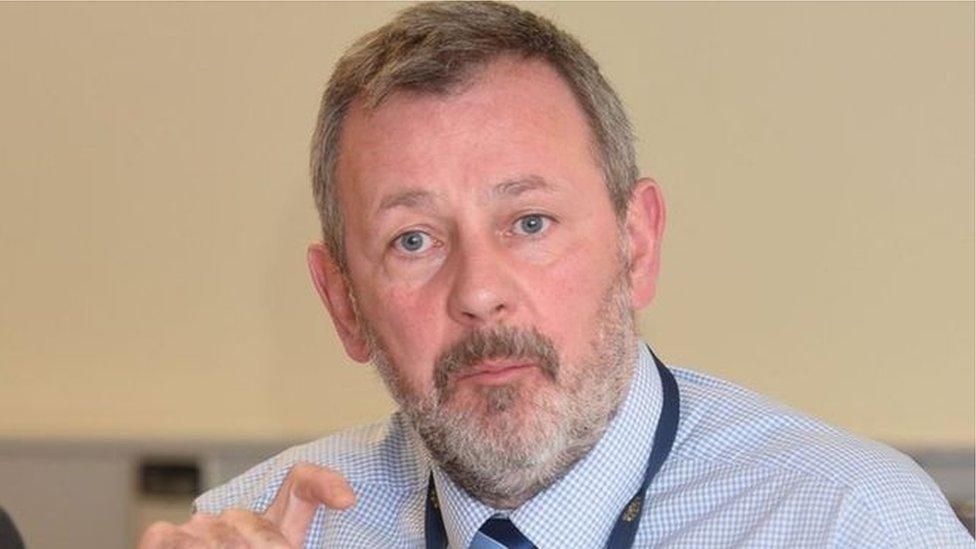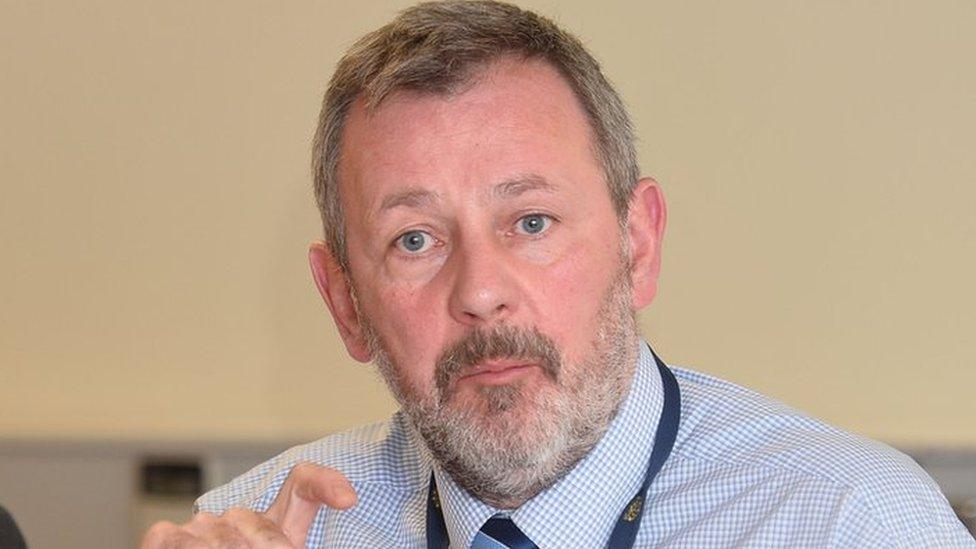Muckamore Abbey Hospital: Problems 'could be tip of iceberg'
- Published
Muckamore could be 'tip of the iceberg'
The crisis at Muckamore Abbey Hospital "could be the tip of the iceberg", the chair of the biggest review into NI's mental health services has said.
Prof Roy McClelland said allegations of abuse at the hospital suggest there is something wrong with the system.
He described testimonies from parents of adult children with profound learning difficulties as "a disturbing listen".
The Bamford Review, external, published in 2007, provided a road map for service reform.
It also introduced legislative changes, including resettling patients in the community.
However, many of the reforms are still not implemented.
Bad apples in a barrel
Prof McClelland said patients and their families had been let down, and that what happened at Muckamore was just not "bad apples in a barrel".
"Instead there is something wrong with the barrel and draws attention to the need to look at the system that has failed these people," he said.
"And it's more than just failures within the trust - it strikes me that we may well be looking at the tip of the iceberg."
In December, a review surrounding the protection of vulnerable adults at Muckamore in County Antrim found that many lives were compromised and there was a culture of tolerating harm.

A report about Muckamore Abbey Hospital listed a series of catastrophic failings
A police investigation is ongoing and 19 health professionals - mostly nurses - have been suspended due to allegations of physical and mental abuse.
Sources have told BBC News NI that the police investigation, which includes viewing thousands of hours of CCTV footage, is unprecedented.
A specialist team has been appointed to review safeguarding between 2012 and 2017.
Apology
Prof McClelland said that while the Belfast Health and Social Care Trust has sole responsibility for what happens within the hospital, others must also be held to account.
"There is no doubt that staff within a unit dealing with those who are vulnerable and have challenging behaviour need supervision," he said.
"There needs to be management and supervision arrangements, scope for people to report problems arising.
"There also needs to be a management structure so far that has failed and why that has failed needs to be looked at.
"Ultimately the permanent health secretary is responsible.
"There are also Department of Health leaders, including mental health leaders, and they all have some responsibility for implementing reforms and modernisation of our mental health services."
In December, the Department of Health apologised to all of the families affected.

Richard Pengelly said no-one should have to call Muckamore their home
Its permanent secretary Richard Pengelly told relatives he was "both appalled and angered that vulnerable people were let down".
"No one should have to call Muckamore their home in future, when there are better options for their care," he said.
"I am now confirming to the families that this will be the case.
"That means Muckamore returns to being a hospital providing acute care, and not simply a residential facility."
Prof McClelland also said that the families' call for a public inquiry should not fall on deaf ears as it would provide an opportunity to examine the entire system.
He said that it was unfortunate the implementation of Bamford Review had taken so long.
"This has been a chronic disappointment for many of us but there is only one way to go and that is forward and to continue to commit to addressing the needs of the most vulnerable in society," he said.
"This is a wider issue where properly trained staff have not been recruited to the adequate levels.
"The resources have not been there to supervise staff and therefore people in middle management positions have not been able to cover all of their patch leaving it open to major incidents like this."
- Published10 December 2018

- Published20 December 2018
